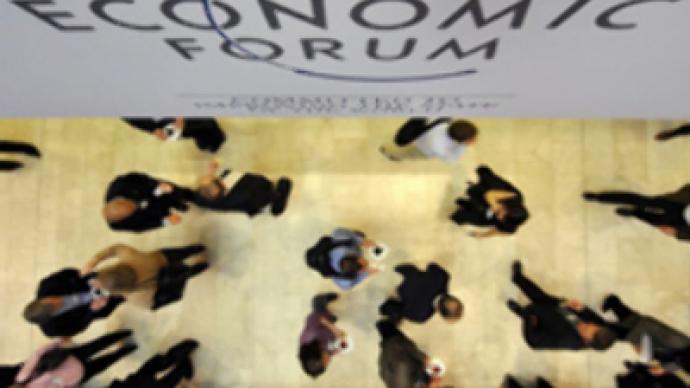The Davos Blues

Trumpeters in Swiss traditional costume blared their fanfares as the financiers walked in.
A man in Alpine garb issued a trill on his flugelhorn every time the head of a Lehman Brothers, Freddie Mac, or the U.S. Treasury Secretary arrived at the World Economic Summit in Davos.
Sounds silly? Well the evidence suggests the big bankers lapped it up.
And despite the financial mayhem these financiers have wrought, next year's Davos summit may be a less contrite event than you imagine.
The head of the World Economic Forum, Klaus Schwab, describes his regrets.
The idea of Davos is that the top companies around the world pay as much as $US 750,000 to send their executives to meet with top economists, leaders, and other business and financial brains. It didn't work, says Schwab.
From 2003 onwards he set up seminars to describe the growing risk to the world financial system from over-borrowing.
“But the financial community didn't listen,” Schwab says. “They were told that any serious look at the economic fundamentals showed that we were in an unstable situation. It was denial, total psychological denial,” he told a reporter from Bloomberg news agency.
So instead, the organisers of the Davos event gave financial leaders what they wanted: solo speaking slots, luxury hotels and VIP treatment. Schwab's deputy added: “We gave them a soapbox. It was all political.”
The Davos organisers arranged workshops to explain to the bankers that they had to wake up.
Here's a short extract from the Bloomberg story: “In the ‘Why Do Brains Sleep?’' meeting in 2007, a cadre of eminent psychologists and psychiatrists explored whether financial leaders got enough rest and ”what that tells us about the quality of their decision-making.“
To spur delegates into addressing financial-market alienation, a session in 2004 was held to discuss whether extraterrestrials had taken control of Wall Street: ‘Have Extraterrestrials Made Contact with Government Leaders?’
The ruse didn't work.”
WEF Chief Operating Officer Kevin Steinberg recalls the attitude among some of the delegates at Davos from 2003 to last January.
“It was clear irresponsibility on their part and it's more damning than anyone can imagine,” says Steinberg, who has been with the WEF for more than a decade. The former McKinsey & Co. management consultant supervises the forum's finance industry delegates.
“By 2003, the over-leveraging of the system was a serious topic of conversation, but some 60 of WEF's corporate members from the financial world never had an understanding of how big a problem it was,” Steinberg adds. “We had assembled the world's greatest economic experts to confer with them, and the financial community was not aware of that expertise.”
The metaphors about flying saucers went straight over their heads.
And remember about whom we are talking: “the foremost global partnership of business, political, intellectual and other leaders,” as the WEF writes on its Web site.
Read this about the Davos Summit of 2005, from the same Bloomberg article: “One of the WEF's sessions that year was ‘Spotting the Next Bubble Before It Bursts.’ Goldman Sachs Group Inc. CEO Lloyd Blankfein ran the meeting with Syron, then CEO of Freddie Mac, the now-discredited U.S. government-sponsored mortgage buyer and reseller that along with Fannie Mae in September required a $US 200 billion government bailout.”
Forget about lights in the sky, it seems for many of those bankers, the lights were not on at all.
Mark Gay, RT













